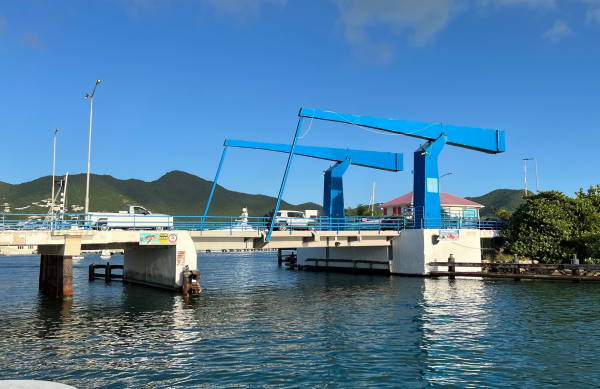PHILIPSBURG:--- The Department of Social Development, within the Ministry of Public Health, Social Development & Labour, successfully hosted the Senior Connect initiative on Friday, February 27th, at the Government Administration Building. Despite overcast skies and intermittent rainfall, the event drew an impressive turnout of senior citizens from across the community.
Upon arrival, attendees were welcomed by the warm and melodious sounds of the steel pan, creating a vibrant and inviting atmosphere. The program opened with the Sint Maarten Song performed by Sweet Pan, followed by opening prayers delivered by Mrs. Elencia Baptiste-Boasman. Opening remarks were provided by the Minister of Public Health, Social Development & Labour, who emphasized the invaluable contributions of the nation’s elders. He highlighted the pivotal role seniors have played in shaping the country and reaffirmed his commitment to supporting their wellbeing.
Senior Connect focused on creating meaningful engagement by linking seniors with essential services tailored to their needs, strengthening social connections, and empowering them through valuable information and resources. A visually striking fruit cart at the entrance underscored the importance of healthy eating, complemented by an energetic exercise session that impressed many with the vitality and enthusiasm displayed by the seniors.
The event also featured a presentation by the Social Insurance Bank (SZV) delivered by Mr. Reginald Willemberg. Representatives from the Tax Department Mr. Marlon Kwidama & Kelron Bellot, were available to address inquiries, and the Community Police Officers provided important safety tips. Exhibits were organized into four color coded zones:
• Health & Wellness Zone (Green)
• Home Care & Support Services Zone (Blue)
• Independent Living Zone (Yellow)
• Finance & Community Zone (Purple)
A total of 27 service providers participated, offering a wide range of support and information. More than 200 visitors were in attendance, taking the opportunity to engage meaningfully with service providers and connect with their peers.
The Department of Social Development extends its sincere appreciation to all service providers, volunteers, seniors, family members, caregivers, and everyone who contributed to making Senior Connect a success.






 PHILIPSBURG:--- The Police Force of Sint Maarten (KPSM)takes this opportunity informs the general public on certain measures being taken in connection with the commencement of the 46th edition of the St. Maarten Heineken Regatta, which will take place from March 5th to March 9th, 2026.
PHILIPSBURG:--- The Police Force of Sint Maarten (KPSM)takes this opportunity informs the general public on certain measures being taken in connection with the commencement of the 46th edition of the St. Maarten Heineken Regatta, which will take place from March 5th to March 9th, 2026. PHILIPSBURG:--- The Dutch police forces of the Dutch Caribbean, united under the College van Korpschefs, hereby announce the launch of a coordinated Interinsular Gun Buyback and Firearm Surrender Action.
PHILIPSBURG:--- The Dutch police forces of the Dutch Caribbean, united under the College van Korpschefs, hereby announce the launch of a coordinated Interinsular Gun Buyback and Firearm Surrender Action. SIMPSON BAY:--- Representatives of Princess Juliana International Airport (IATA: SXM) are participating in Routes Americas 2026 in Rio de Janeiro, Brazil, presenting a renewed strategy focused on strengthening the airport’s global position, with particular interest of expanding into the South American market.
SIMPSON BAY:--- Representatives of Princess Juliana International Airport (IATA: SXM) are participating in Routes Americas 2026 in Rio de Janeiro, Brazil, presenting a renewed strategy focused on strengthening the airport’s global position, with particular interest of expanding into the South American market. POINTE BLANCHE:--- Port St. Maarten Group (PSG) advise motorists that in connection with the 46th edition of the St. Maarten Heineken Regatta, scheduled for March 5–8, an adjusted Simpson Bay Bridge opening schedule will be in effect in addition to the regular daily openings.
POINTE BLANCHE:--- Port St. Maarten Group (PSG) advise motorists that in connection with the 46th edition of the St. Maarten Heineken Regatta, scheduled for March 5–8, an adjusted Simpson Bay Bridge opening schedule will be in effect in addition to the regular daily openings. 




